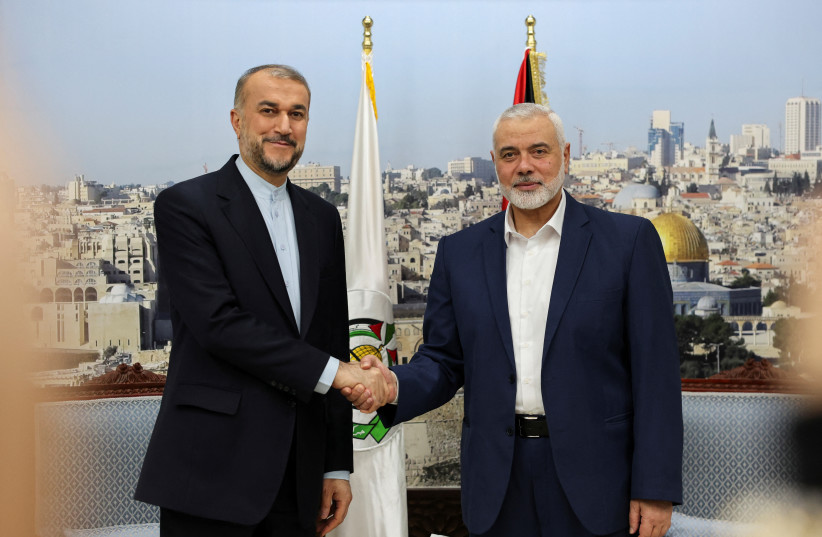Hamas's leadership may be feeling the strain of the ongoing war with Israel, as the two main leaders of the terrorist organization have not spoken in over a month, according to reports.
Yahya Sinwar, Hamas's leader in Gaza and the architect of the October 7 attacks, and Hamas political leader Ismail Haniyeh have not communicated in at least a month, The Wall Street Journal (WSJ) reported on Sunday, citing Egyptian sources.
The ongoing silence would make it difficult for Israel to agree to a hostage exchange deal with the Hamas leadership, the sources stated. The US, Qatar, and Egypt are spearheading efforts for a hostage deal and a ceasefire.

Haniyeh hopeful for Hamas rule to continue in Gaza
Sinwar, according to the Egyptian officials, has conveyed to mediators that Hamas considers itself victorious in the conflict, despite substantial military casualties, the WSJ reported. It is estimated that Israel has eliminated around one-quarter of Hamas's military force, according to the WSJ.
On the other hand, Hamas's political leadership, including Haniyeh, which is based in the Qatari capital, Doha, has continued to engage in talks with Qatar and Egypt, aiming to secure Hamas's relevance in the rule of post-war Gaza. This leadership has also expressed a willingness to demilitarize in Gaza, a stance strongly opposed by Sinwar, as indicated by Egyptian officials, the WSJ stated.
Israel remains steadfast in opposing any role for Hamas in a future Gaza government, and Prime Minister Benjamin Netanyahu has attempted to rule out allowing the Fatah-controlled Palestinian Authority to rule in Gaza.
